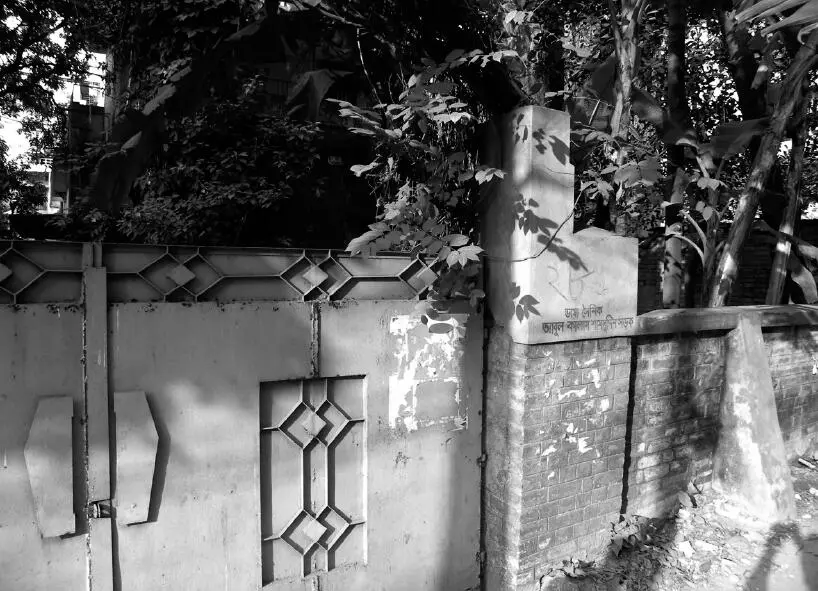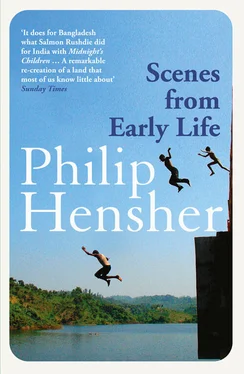Scenes from
Early Life
A novel
Philip Hensher
Dedication
For Richard Heaton
Contents
Cover
Title Page Scenes from Early Life A novel Philip Hensher
Dedication
Author’s Note
Chapter 1 - At Nana’s House
Chapter 2 - The Game of Roots
Chapter 3 - Altaf and Amit
Chapter 4 - A Journey in the Dry Season
Chapter 5 - A Party at Sufiya’s
Chapter 6 - How Big-uncle Left Home
Chapter 7 - Nana’s Faith in Rustum
Chapter 8 - How Amit Went to Calcutta
Chapter 9 - How I Was Allowed to Eat As Much As I Liked
Chapter 10 - The Song the Flower Sang
Chapter 11 - Structural Repairs
Chapter 12 - Nadira’s Wedding
Chapter 13 - What Happened to Them All?
Acknowledgments
About the Author
Also by Philip Hensher
Credits
Copyright
About the Publisher Конец ознакомительного фрагмента. Текст предоставлен ООО «ЛитРес». Прочитайте эту книгу целиком, купив полную легальную версию на ЛитРес. Безопасно оплатить книгу можно банковской картой Visa, MasterCard, Maestro, со счета мобильного телефона, с платежного терминала, в салоне МТС или Связной, через PayPal, WebMoney, Яндекс.Деньги, QIWI Кошелек, бонусными картами или другим удобным Вам способом.
Author’s Note
This is a novel of the formation of Bangladesh. Until 1971, it formed an eastern province of Pakistan, divided from the western part by geography, language, and culture. It broke from the western side in a savagely violent war of independence. In December 1971, after the deaths of uncounted innocent victims in the civil war, a new country was declared: Bangla Desh, the Home of the Bengalis.
Scenes from Early Life is the story of one upper-middle-class Bengali family, a novel which is told in the form of a memoir. The narrator speaks in the voice of Zaved Mahmood, the author’s husband, who was born in late 1970 shortly before the outbreak of the war of independence.
Chapter 1
At Nana’s House
1.
Even the shit of a dog smells good to you, if it’s English.
(Ingrazi kuttar gu-o tomar khache bhalo.)
My grandmother used to say this to my grandfather. He was very pro-Empire. That was my mother’s father, who used to call me Churchill when I cried. At first I did not know who Churchill was, but my grandfather would explain to me, and after a while I knew who he meant when he said Churchill. He meant me, and often he would ask to have me sit next to him at the lunch table. ‘I want Churchill here,’ he said, and I would be led up by my ayah, not crying at all. I felt very proud. The theory was that when Churchill was a little boy, he used to cry very much. All the time. He was a great reader of biographies, my grandfather.
When he went out to a friend’s house, we would drive there in a big red car – a Vauxhall, I think. He was an income-tax lawyer, the president of the East Pakistan Income Tax Lawyers’ association. Later, the Bangla Desh Income Tax Lawyers’ Association. There, at one old man’s house or another, I would be allowed to stay in company for a while. He liked to show me off, and would call me Churchill in front of his friends. I don’t believe that, as he said, he thought I would be the Churchill of Bangla Desh when I grew up. I think he mainly called me that because I cried.
My grandfather’s great friend was called, by us, Mr Khandekar-nana. He had been a friend of my grandfather’s from college, all the way back in the British time. They used to share a room when they were at college, a long time ago in the 1930s, and ever afterwards, they were friends with each other. They had gone on being friends when they moved to Calcutta to be lawyers. (That was where they were in 1947.) And afterwards they had both moved to Dacca. My grandfather was Nana to us and his friend was Mr Khandekar-nana.
They both lived in the Dhanmondi area, very close to each other. It was the best place in Dacca to live. Nana’s house was in road number six; Mr Khandekar-nana’s was in road number forty. Both of them were two-storey houses with glass walls to the porch and flat roofs, both intricate and complex in their ground plan. It was only a ten-minute walk from Nana’s house to Mr Khandekar-nana’s, and it was a pleasant walk. The roads of Dhanmondi were quiet, and lined with trees, all painted white to four feet high, to discourage the ants. ‘Ants can’t walk on white,’ my mother used to say. ‘They are frightened of being seen. So that’s why they paint the tree trunks white.’ I still don’t know how true that is. On the walk from Nana’s house to Khandekar-nana’s house, you would see only the occasional ayah, or mother, walking with her children, only the occasional houseboy loafing outside against the high, whitewashed walls of the houses, in those days. But my grandfather had a big red car, a Vauxhall, I think, and we drove the short distance to Mr Khandekar-nana’s house.
Among the keen interests they shared were plants and flowers, and they kept their gardeners up to the mark. In front of their houses were roses, jasmine, dahlias, even sunflowers – English flowers, often. The two of them took pleasure in choosing flowers together, and their gardens were only different in small details. They were planted neatly, in rows, against the neat white Bauhaus style of their houses, and the mosaic in ash and white and green on the ground. The flowerbeds were in the sunniest part of the garden, away from the tamarind tree at the front of my grandfather’s house, the mango tree at the front of Mr Khandekar-nana’s.
The visits to Mr Khandekar-nana’s followed the same sequence. My grandfather and Mr Khandekar-nana would go up to the balcony, shaded by the mango tree, and I would be allowed to go up with them. The tea would arrive and a plate of biscuits. My grandfather and Mr Khandekar-nana would take one biscuit each – one, one, judiciously, carefully, as lawyers do. Then I would be allowed to eat the rest. My grandfather would boast about how many books I had read, and as Khandekar-nana’s wife arrived, to greet us and bring my grandfather up to date with her grandchildren, he would mention that he thought in the end I would be the Churchill of Bangla Desh.
A great friend of mine was the daughter of another friend of my grandfather, a child specialist who lived quite opposite Nana’s house. She was ten years older than I was. When we visited them, she would take me to her living room and feed me biscuits from her own tin. It had English pictures on top of it, of a house with hair for a roof and a pony eating from a lawn. She had a lot of books and a phonogram; still, it is the biscuits that I remember. I wonder now whether I was notorious in the neighbourhood. But I will explain why I was allowed to eat whatever I wanted when I come to it.

2.
He had a driver, my grandfather, which always very much impressed me. The driver’s name was Rustum. Rustum stayed in the family for fifteen years, living with his family just next to the garage, outside the courtyard of the house. He was always very friendly to us children. I got to know him not because of our Sunday trips to my grandfather’s friends, but because of what happened during the week. My grandmother would often ask Rustum to go to market for her. Rustum, too, liked me, and he would ask me and sometimes my sister to go with him. We always went because he slipped us a lozenge or a jujube at the end of the trip.
Читать дальше













